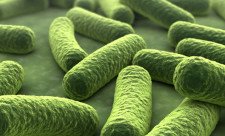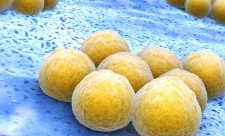
The gut flora consists of the entirety of all bacteria and yeasts which live in the digestive tracts of animals and humans. Their composition depends on the kind and age of each organism and its diet. Some 1014 bacteria live in the human gut, about ten times the number of human cells. So far, some 500 to 1,000 different species of bacteria have been identified. They play a major role in the metabolisation process (filtration and conversion of the food’s vitamins and nutrients). Normal gut flora (good or healthy bacteria) offers protection from pathogens. Diet, climate, stress, exercise, and condition of the gut mucosa all influence its composition. Intake of antibiotics changes the gut flora, some bacterial species are reduced or eliminated with the number of resistant bacteria increasing out of proportion. Antibiotic treatments may hence result in gut dysfunctions.
See more at: https://www.gesunde-bakterien.de/darmflora/#sthash.HQfwzEpq.dpuf
Dieser Post ist auch verfügbar auf: German

 19. Jul 2014
19. Jul 2014 Popular
Popular Recent
Recent Comments
Comments












